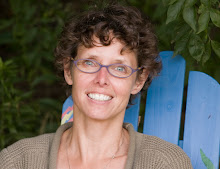Michael White Video
I just finished watching Michael White's video, Best of Friends, and found it fascinating. I was struck by several things:
- I have been thinking of "story" as a part of a person's narrative or meaning you can capture in a neat paragraph or block of text (that's the writer in me) but "story" as Michael works with it is a more organic, entwined entity. A story might have many (dozens?) of different paths you could follow--there may be any number of different entrances.
- I recognized the reflecting and summarizing skills I've been learning...
- I began to sense from a bigger picture where he was going and how he was gently managing the conversation within a specific framework designed to reinforce the alternate story the couple presented, meet their goals for being in the session that day, identify new learnings that they can continue to build on after the session, and ask the couple to predict how these new learnings might help them in resolving the presenting problem that brought them to therapy.
- He made a point to predict that he felt their predictions would come true.
- He also said several times he'd like to be present when they continue their dialogs with supporting family members (mothers and grandmother)
- He discovered who would be influential in helping the couple rebuild their friendship (the husband held as an ideal the friendship between his parents) and asked what the mother would say if she were there in the room and they told her they were working on their relationship. When the answer came that she would be affirming and supportive, he made a point to continue to include her in the conversation and ask the couple to have that conversation with her to bring her into it.
- He very gently helped build a support network for this couple's new emerging story of themselves.
- I found how difficult it was for me to listen and understand from this "big picture" place--I kept wanting to key off of individual words and lead the conversation in perhaps a mistaken direction. In CPE I am learning where I am "invited in" to a story, but I might try to open a door on a key feeling word, "I get really frustrated when he does that." "What's that like for you, when you get really frustrated?" instead of understanding where we are in the path of discovering the couple's story.
- In the segment where the reflecting team was talking about the session just conducted (didn't Minuchin originate this format?), I started to get frustrated because I felt the therapists were missing things I saw. I noticed the way in which the communication patterns were created around power and powerlessness--I wanted someone to address that. But as I reflected on that issue, I also saw that I was thinking "perpetrator and victim" (which probably comes from my own stuff) and not being open to the couple's presenting problem and the story that was helping to create and ultimately change it.


0 Comments:
Post a Comment
<< Home